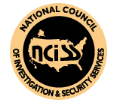Introduction
When determining child custody arrangements, the court’s primary focus is the best interests of the child. Any factor that might impact a child’s health, safety, and well-being will be carefully considered in custody proceedings. Parental drug and alcohol abuse is one of the most significant concerns that can affect custody decisions. In this article, we explore how substance abuse influences custody rulings, legal considerations, and what actions can be taken to protect children in these situations.
Understanding the Impact of Alcoholism on Child Custody
Effects of Parental Alcohol Abuse on Child Well-being
A parent’s alcoholism can negatively impact a child’s physical, emotional, and psychological health. Common issues include:
- Neglect and inconsistent parenting due to intoxication or withdrawal symptoms.
- Exposure to unsafe environments, such as drunk driving or domestic disputes.
- Emotional distress from witnessing a parent’s erratic behavior.
- Developmental delays due to lack of proper care and supervision.
Legal Considerations in Custody Cases Involving Alcohol Abuse
Courts take alcohol and drug abuse very seriously when determining custody arrangements. Judges assess:
- The frequency and severity of substance use.
- Past incidents involving DUI charges, domestic violence, or neglect.
- Efforts toward rehabilitation, such as participation in addiction treatment programs.
- Expert testimony from child psychologists or social workers about the child’s best interests.
How Courts Assess Alcohol and Drug Abuse in Custody Cases
1. Mandatory Drug and Alcohol Testing
If there is suspicion of substance abuse, the court may order random or scheduled drug and alcohol testing for both parents. In cases where one parent has a documented history of abuse, the judge may require more frequent or in-depth testing to ensure compliance with sobriety requirements. 🔹 If you need concrete evidence of a co-parent’s substance abuse, our child custody investigations can help gather the proof needed to strengthen your custody case.
2. Supervised or Restricted Visitation
When a parent’s substance abuse poses a risk to the child, the court may order supervised visitation or limited parental access. This ensures the parent is not under the influence while spending time with their child. 🔹 If concerns go beyond substance abuse and involve infidelity impacting family stability, our adultery investigations can provide valuable insights for custody cases.
3. Awarding Custody to the Sober Parent
In severe cases of alcoholism or drug dependency, the court may award full custody to the sober parent. Judges assess the child’s safety, stability, and the parent’s ability to provide care before making a decision. 🔹 If financial support is a concern after gaining full custody, our alimony investigation services can verify whether your ex-spouse is accurately reporting their financial status.
4. Prohibiting a Parent from Driving with the Child
If a parent has a history of DUI arrests or is deemed a high-risk driver due to substance abuse, the judge may prohibit them from transporting their child. This restriction is put in place to safeguard the child from potential harm. 🔹 If a parent’s criminal history is relevant to your custody case, our criminal defense investigations can uncover critical evidence to support your claim.
Gathering Evidence of Alcohol Abuse
Documenting Alcohol-Related Incidents
Parents seeking custody should maintain a detailed record of:
- Missed visitations due to intoxication.
- Erratic or dangerous behavior linked to alcohol use.
- Arrest records and past DUI charges.
- Witness statements from family, friends, or caregivers.
Collecting Witness Testimonies
First-hand accounts from family members, neighbors, and professionals can strengthen a custody case by demonstrating a history of alcohol-related concerns.
Obtaining Medical and Rehabilitation Records
- Court-ordered rehab program participation may indicate a history of addiction.
- Medical reports showing past hospitalizations due to alcohol poisoning or withdrawal symptoms can be used as evidence.
Utilizing Technology and Testing in Proving Alcoholism
Alcohol Monitoring Systems
Tools like Soberlink provide real-time monitoring and court-admissible evidence of alcohol consumption.
Court-Ordered Alcohol Testing
Judges can mandate EtG urine tests, breathalyzer tests, or hair follicle testing to detect alcohol consumption over extended periods.
Legal Procedures and Strategies
Filing Motions for Alcohol Testing
A parent concerned about their ex-spouse’s substance use can file a motion requesting court-ordered testing.
Presenting Evidence in Court
Organizing documentation effectively and providing expert testimony can significantly impact a judge’s ruling.
Addressing Challenges and Counterarguments
Defending Against False Accusations
If a parent is falsely accused of alcoholism, they can:
- Request third-party evaluations to confirm their sobriety.
- Challenge misleading evidence through legal representation.
Understanding the Limitations of Evidence
- Some alcohol tests may produce false positives due to medication or dietary factors.
- Witness statements alone may not be sufficient—corroborating evidence is essential.
Alternative Resolutions and Agreements
Mediation and Settlement Options
Rather than pursuing litigation, parents may choose mediation to develop an agreement regarding alcohol-related concerns.
Implementing Sobriety Clauses in Custody Agreements
A sobriety clause can require a parent to remain alcohol-free during their parenting time, with random testing to enforce compliance.
Why Choose Bulldog PI for Child Custody Investigations?
At Bulldog PI, we specialize in gathering solid evidence to help parents protect their children in custody battles involving alcoholism and drug abuse. If you need assistance, our investigators operate in:
📞 Contact Bulldog PI today for a confidential consultation and protect your child’s best interests.
Conclusion
When alcohol or drug abuse is a factor in a custody case, courts take strong measures to protect children. If you are concerned about your child’s safety due to a co-parent’s substance abuse, take action by gathering evidence, seeking legal support, and working with professionals who can help. 🔹 Take the next step—schedule a consultation with Bulldog PI today!










